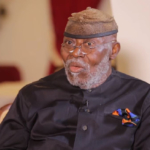
Whilst undertaking an MSc. In African Politics at the School of Oriental and African Studies (SOAS) in London, there’s a doctrine many of us wrestled with: “strong men and weak states.”
In African politics it traces back to Joel Migdal’s account of states that struggle to project authority amid powerful social networks, and to Jackson & Rosberg’s classic portrait of personal rule—the slow slide from institutions to individuals.
The punchline is simple: when institutions hollow out, personality steps in. And once that happens, getting the state back—rule-by-law instead of rule-by-man—becomes exponentially harder.
Ghana is not there. But we are inching. And inching is how democracies drift.
The immediate warning lights
1) Short tenures at the apex of the judiciary. Our Constitution sets a hard mandatory retirement at 70 for Supreme Court Justices (including the Chief Justice). That means a newly appointed CJ could serve for barely a year if he or she is near that threshold.
Rapid turnover at the top concentrates influence in the hands that appoint and confirm—not in a steadily led Court. That is not abstract: Article 145 fixes the retirement architecture, and recent public debates and court references have repeatedly affirmed the 70-year ceiling.
2) Hyper-presidential appointments into “independent” bodies. Article 70 lets the President appoint a long list of gatekeepers—from the Electoral Commission to key regulators—often with limited external veto points. Multiple reform memoranda and commentaries have flagged this as the gravitational center of Ghana’s “winner-takes-all” problem. If not rebalanced, a future majority can convert personnel power into systemic power.
3) Repeated friction with accountability officers. The Supreme Court ruled in 2023 that the President’s directive sending Auditor-General Daniel Domelevo on leave—and installing an acting AG while a substantive one existed—was unconstitutional.
Whatever one’s politics, that episode proved how fragile our guardrails can be when executive convenience collides with institutional independence. Pair that with the Special Prosecutor saga and you see the template strongmen everywhere use: first sideline the referees, then play the game.
4) Centralized local government. We still do not elect MMDCEs. The 2019 bid to amend Article 243(1) and related provisions was withdrawn.
Keeping appointment power for local executives preserves patronage channels that any “strong man” can exploit to build a private machine from public office. Decentralization is how you make a state strong from the bottom up; we punted.
5) Super-majorities amplify all of the above. With the NDC now holding a commanding parliamentary majority after the 2024 elections, the risk is symmetrical to the NPP’s earlier edge: when one camp can pass appointments and ordinary legislation with minimal negotiation, temptation grows to govern by muscle memory rather than institutional mercy. Strong parties are fine; unchecked parties are how states get weak.
The doctrine in plain English : what “strong men, weak states” would look like here
• Fast-cycling Chief Justices → slow, uncertain jurisprudence, easier politicization of panels, and less institutional memory at the top of the Court. In that fog, executive and parliamentary majorities loom larger than constitutional culture.
• Personnel power over rules power. If Article 70 remains wide-open, appointments—not statutes—become the true constitution. You don’t need to “break the law” if you can be the law through who you name to enforce it.
• Patronage over performance. Nonelected local executives owe careers upward, not outward. That’s how national politics colonizes districts and metastasizes into neopatrimonialism—exactly the pattern Jackson & Rosberg warned about.
• Normalization of exceptionalism. Once sidelining an Auditor-General or nudging a prosecutor out becomes “how things are done,” the precedent is the policy. The next government—any color—copies it. That’s institutional entropy.
Are we paying enough attention? Barely.
The public debate is vivid on personalities and quiet on plumbing. But plumbing decides whether water flows. The good news is that Ghana has re-opened constitutional reform in 2025. The risk is that we do what we’ve done before: consult, draft, and then stall. This time, the reform agenda must shift the system’s center of gravity away from personalities and towards rules.
The amendments that would actually make the state strong
If the ongoing review crystallizes into bills, here are the must-pass items—drawn from prior Commission work, civil-society submissions, and comparative best practice:
1. Re-engineer Article 70 appointments.
• Require supermajority parliamentary approval (e.g., two-thirds) for the heads and deputies of constitutionally independent bodies (EC, CHRAJ, Auditor-General, NMC, EOCO).
• Stagger terms so no single presidency can fill the bench of an entire commission.
These themes appear across the 2010–12 Review/White Paper trail and have resurfaced in 2025 submissions.
2. Elect MMDCEs with party competition (amend Articles 243(1) and 55(3)), alongside real fiscal devolution (protect District Assemblies Common Fund flows from central interference). This cuts the umbilical cord between local office and national patronage.
3. Judicial leadership continuity without politicization.
• Keep the 70 ceiling (health and renewal matter), but create a transparent succession protocol and minimum time-to-retirement for CJ appointments (e.g., no CJ nominee with <24–36 months to mandatory retirement unless Parliament approves by supermajority).
• Expand Judicial Council input on CJ selection beyond perfunctory consultation.
The retirement baseline is settled law; the continuity fix is the missing piece.
4. Shield watchdogs from ad-hoc removal or “administrative leave.”
• Codify that acting appointments cannot displace a substantive office-holder except by processes mirroring removal standards; give the Supreme Court original jurisdiction on any such dispute under expedited timelines.
The Domelevo ruling showed the hole; this plugs it.
5. Decouple Cabinet from Parliament (Articles 78–79 reform).
• Limit the number of MPs who can serve as ministers or require they vacate their seats upon appointment, strengthening oversight and ending the incentive to capture Parliament via ministerial carrots. This is widely urged in current scholarship and commentary.
The politics of passing it
The NDC’s present majority gives it the numbers to move serious reform. That’s precisely why it should tie its hands now—to prove it governs for the republic and not for a turn at the controls. If Mahama’s government shepherds reforms that reduce presidential dominance, Ghana will have done something rare in global politics: a majority using power to give power away. That’s how you build a strong state that outlasts any strong man.
The north star
Migdal taught that states become strong when they penetrate society with legitimate, predictable rules, not personal networks. Jackson & Rosberg warned that when the rulebook blurs, personality fills the vacuum. Ghana has a precious window in 2025: reform appointments, decentralize power, harden judicial continuity, and lock in protections for referees. Do that, and the doctrine flips—strong institutions, ordinary men.
–
By: Amanda Akuokor Clinton
The writer is an international lawyer and Head of Chambers at Clinton Consultancy

